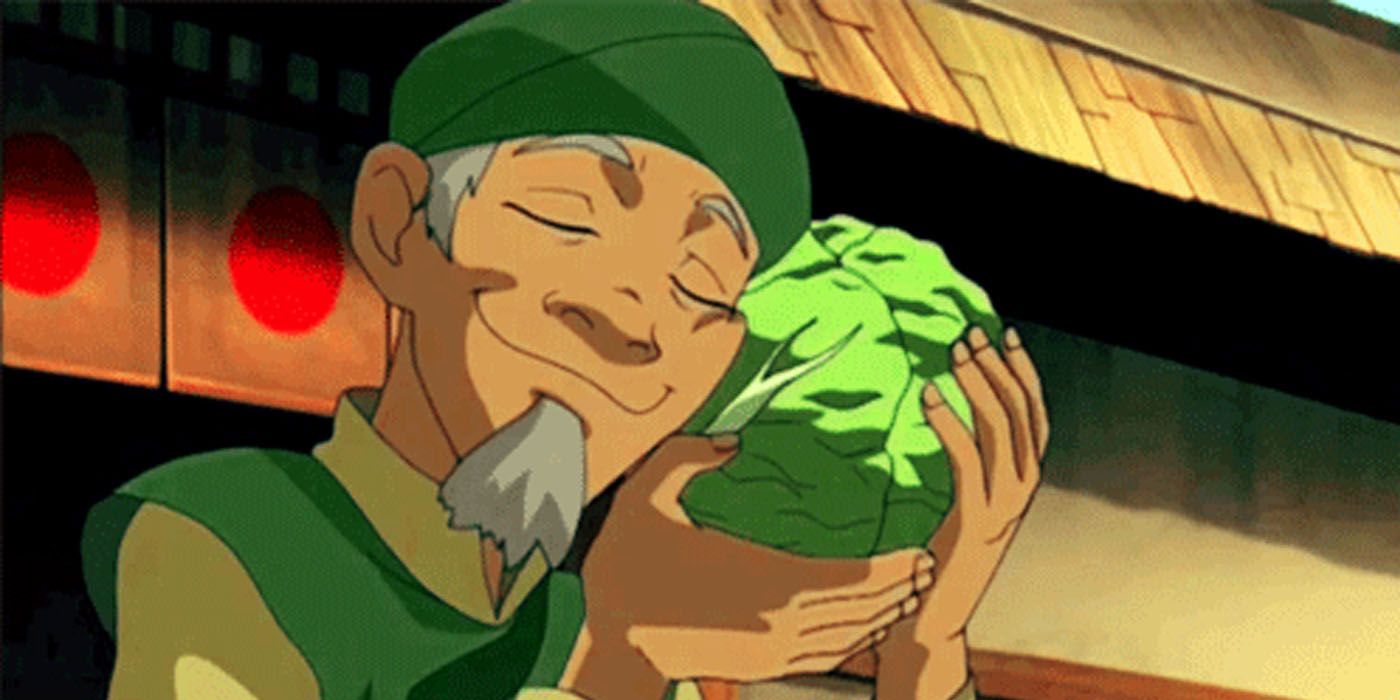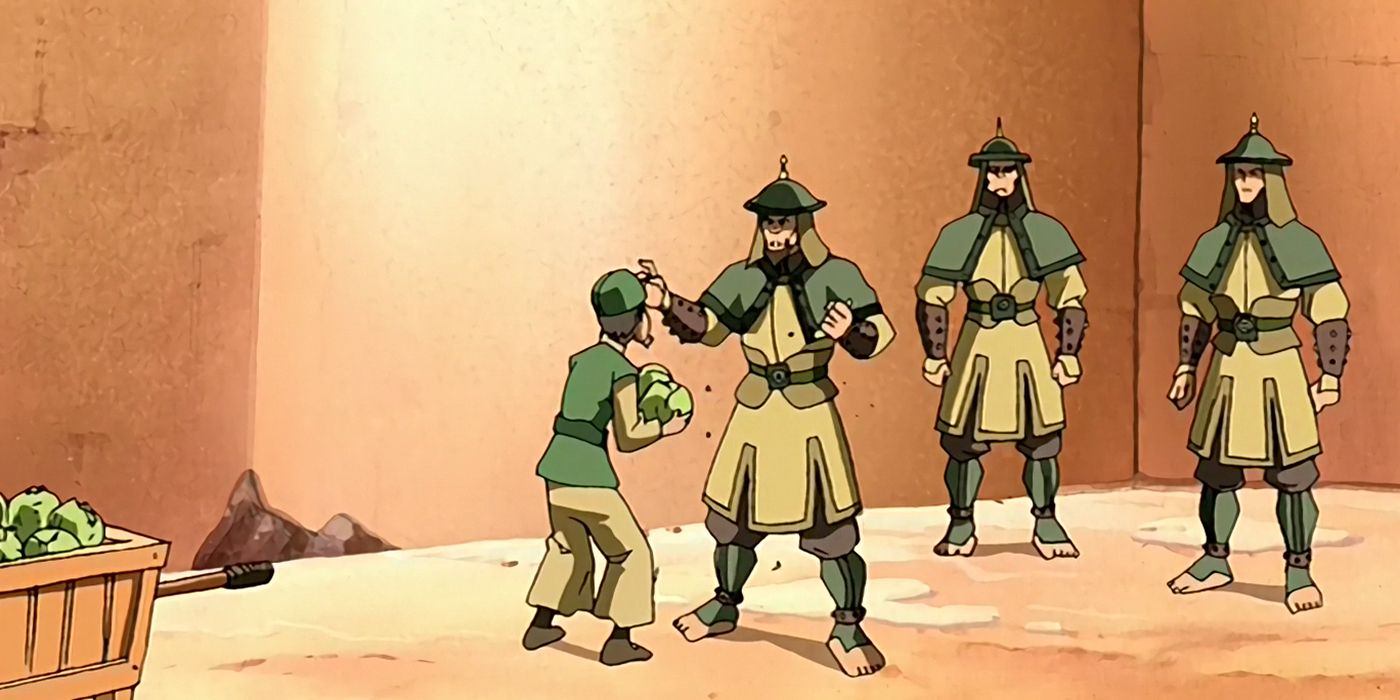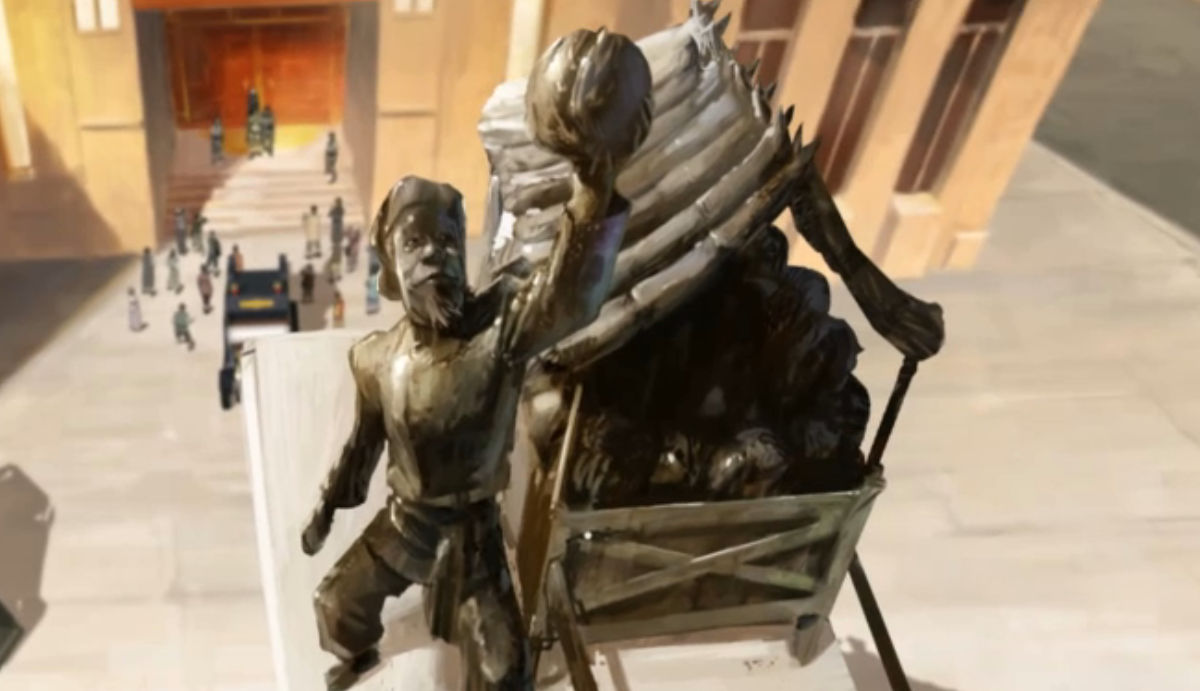The story of Avatar: The Last Airbender is so good from top to bottom that even the background characters get riveting arcs and stories. The best example you can ask for is the Cabbage Merchant, who first appeared in Season 1 as a gag character before becoming a major mover and shaker in The Legend of Korra.
This background character's story was always subtle and easy to miss, but when you put it all together, there's an epic in the tale of the cabbage merchant rolling his cart through the background.
The merchant's humble story started in "The King of Omashu," when Aang and his friends first ran into the salesman trying to negotiate his way into the city of Omashu. The city's guards weren't very big fans of his rotten produce, and earthbent his cabbage cart off the side of a cliff to give the merchant the opening for his iconic line: "No! My cabbages!" The heartbreaking moment occurs just as the Gaang rolls along, and though they were not personally responsible, it would become clear that they were an omen of ill-fortune for the Cabbage Merchant.
Two more times in the same episode, he procures more cabbages, and two more times Aang proves instrumental in destroying them. The first came when Aang was showing off Omashu's mail delivery system with Katara and Sokka, providing their impetus to meet the king as the merchant sought justice, and the second came when Aang and the king himself, Bumi, relived their childhood glory on those same mail chutes.
"The King of Omashu" established a trend that would continue on through the rest of the show, with the Cabbage Merchant appearing again in "The Waterbending Scroll" in the local settlement where the Gaang crossed a band of ruffian pirates. Fleeing the pirates they passed the merchant's cabbage cart without incident until Aang flung the entire cart at the pirates to slow them down. Not only did the merchant exclaim "My cabbages," again, cementing the iconic line as a recurring joke, but added "This place is worse than Omashu," just to hammer home the point.
Yet again the merchant had difficulty passing his merchandise through customs, as the bureaucrats of Ba Sing Se ordered a security platypus bear to crush his cart out of concern for a cabbage slug infestation. Though he did manage to get inside the city eventually and yet again regain his cabbages, a Rabaroo Aang released from a cage saw the ruination of the Cabbage Merchant's recovered goods. Though he seemed to give up and it proved his last appearance in the original show, his legacy would live on.
The Cabbage Merchant was cited as a "surprisingly knowledgeable" source by the playwright Pu-on Tim, who penned "The Boy in the Iceberg" about the Gaang's adventures around the world, helping to flesh out the story that Aang and his friends would later watch prior to the series' finale as a recap for the audience. Following that finale and the end of the war, the Cabbage Merchant found far greater luck in gaining his business traction, starting a restaurant to gain further stability and even patching up relations with the Avatar when Aang brought the first Air Acolytes there.
That's not to say that the Cabbage Merchant's misfortune completely disappeared, as his restaurant came under threat of the giant spirit General Old Iron, but fate has a funny way of taking a turn. Astounded by the ingenuity of the forklift the first time he saw it, the merchant realized his true destiny lay not with produce but in automation. He founded the Cabbage Corps automotive company and lived on as a legend.
In the time of The Legend of Korra, his company expanded to become one of the largest and most influential in Republic City, and a statue of the merchant stood as a testament to his success in defiance of all odds just outside his company's headquarters. Though his son Lau Gan-Lan nearly lost the company following accusations of his involvement with the Equalist terrorist activities, he regained control once the truth came to light.
It may not be the redemption arc of Zuko or the classic coming of age tale of Aang, but the Cabbage Merchant had his own struggles and triumphs the define a compelling story. Sometimes it's okay to take jokes seriously, and when you think to exalt a gag character, you get a compelling exercise in tight, efficient storytelling.



